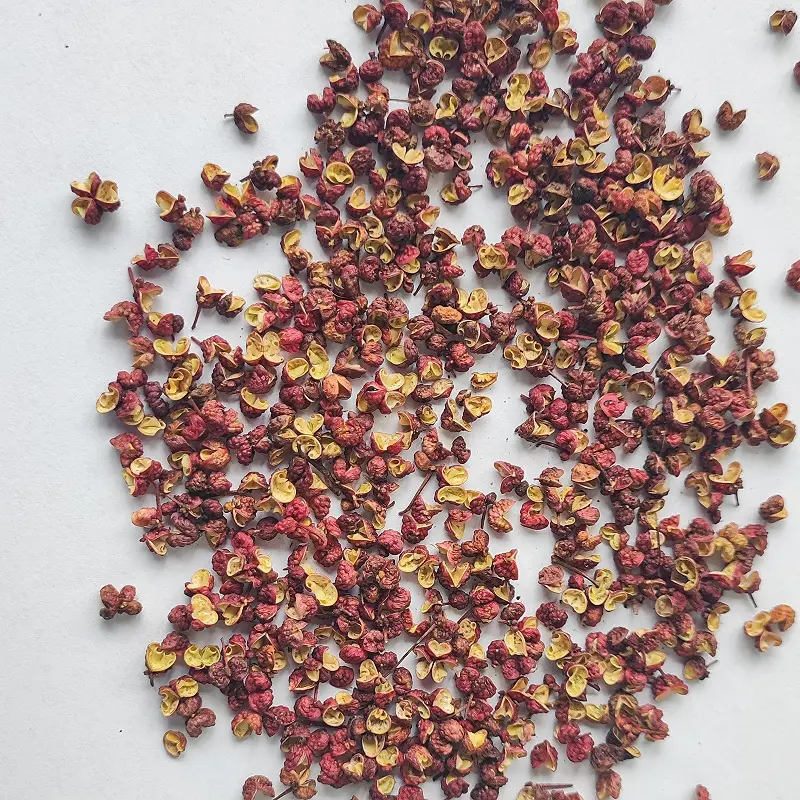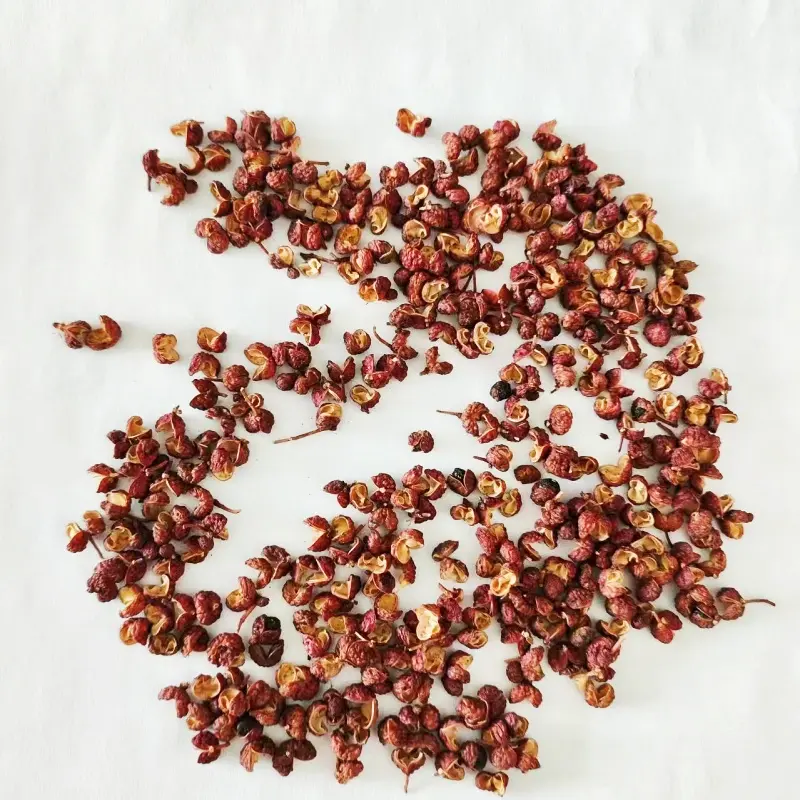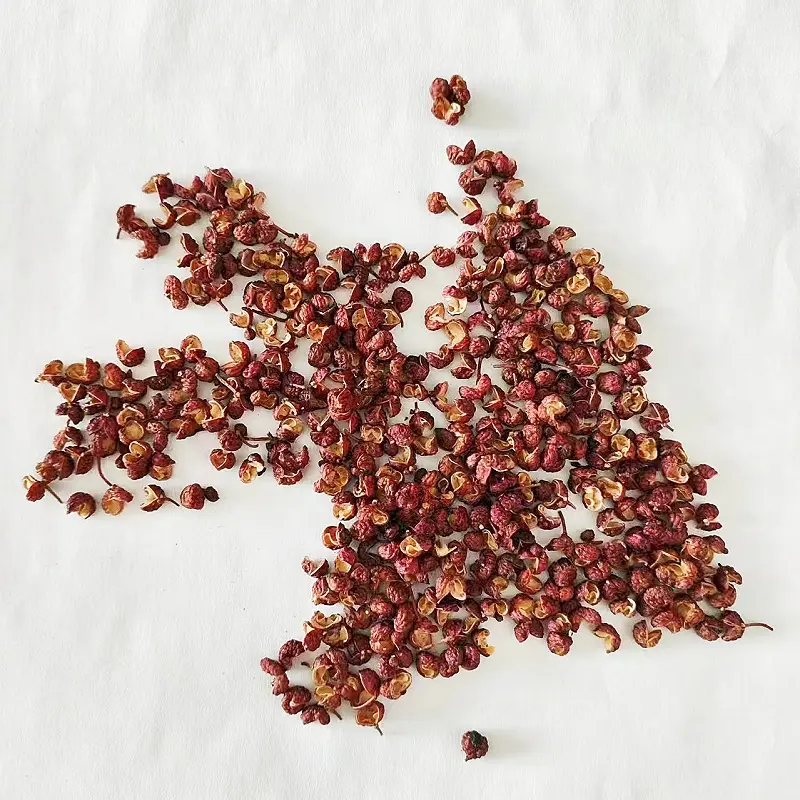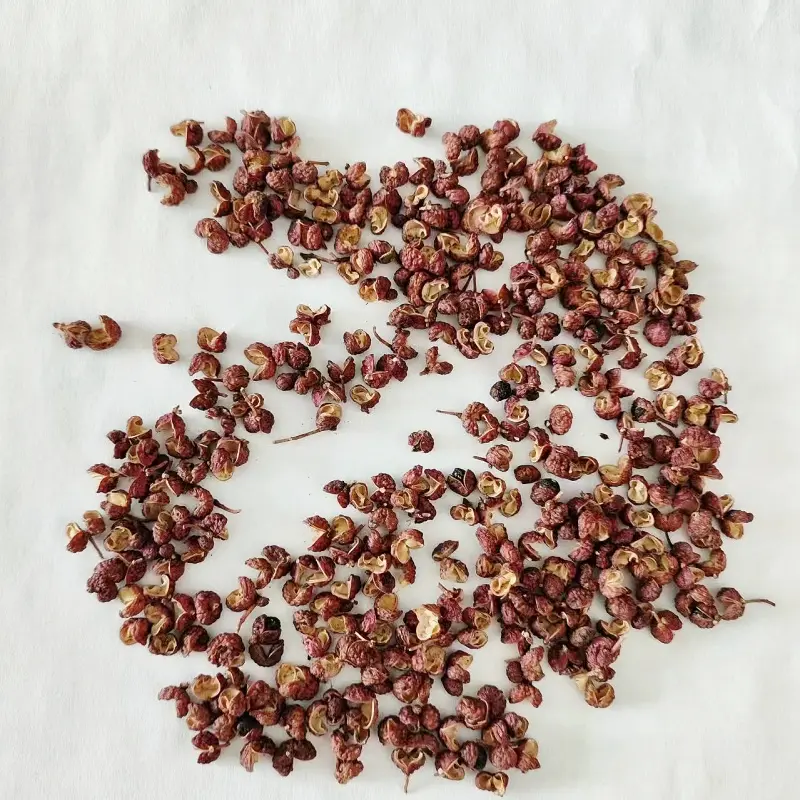Sichuan cuisine is known for its distinctive má (numbing) and là (spicy) flavor profile, and few spices represent this better than Sichuan peppercorns (花椒, huā jiāo) and rattan peppercorns (藤椒, téng jiāo). Although both belong to the Zanthoxylum family, they differ greatly in aroma, chemical composition, culinary applications, and market demand.
With the global demand for premium Chinese spices rising—especially in North America, Europe and East Asia—understanding these two spices is critical for chefs, food manufacturers, seasoning companies, and spice importers.
This comprehensive guide provides research-based comparisons, lab-reported chemical data, industry pricing trends, and culinary insights, helping you choose the right peppercorn for your application.
Botanical and Taxonomic Differences
Although both spices come from the Rutaceae family, they originate from different plant species.
Table 1. Botanical Comparison of Sichuan Peppercorns vs. Rattan Peppercorns
| Attribute | Sichuan Peppercorns (Red/Green) | Rattan Peppercorns (藤椒) |
|---|---|---|
| Scientific Name | Zanthoxylum bungeanum / Z. simulans | Zanthoxylum armatum |
| Common Names | Chinese prickly ash, Szechuan pepper | Téng jiāo, Green rattan pepper |
| Geographic Origin | Sichuan, Gansu, Shaanxi, Chongqing | Sichuan, Guizhou, Yunnan |
| Harvest Season | August–October | July–September |
| Typical Color | Red or green husks | Bright green husks |
| Export Volume Trend | Stable and rising | Rapid growth due to increased demand for green sauces |
For more detailed information about Sichuan peppercorns, please see: What are Sichuan peppercorns ? For farmers of origin
Flavor Profile and Aroma Differences
The most significant difference lies in flavor. Both produce a numbing sensation, but their aromatic components differ sharply.
Aroma Compounds Based on Lab Analysis
Several food science labs—including the Sichuan Agricultural University Flavor Institute—have analyzed volatile oils from both spices.
Table 2. Key Aroma Compounds (per 100 g Essential Oil Extract)
| Aromatic Compound | Sichuan Peppercorns (mg/kg) | Rattan Peppercorns (mg/kg) | Sensory Effect |
|---|---|---|---|
| Limonene | 18–25 | 40–55 | Fresh citrus aroma |
| Linalool | 30–40 | 45–60 | Floral, sweet |
| Hydroxy-α-sanshool | 150–180 | 200–240 | Tingling numbness |
| β-Myrcene | 10–18 | 25–32 | Herbaceous scent |
| Citronellal | 12–16 | 35–50 | Lemon grass aroma |
Rattan peppercorns contain significantly higher amounts of limonene, citronellal, and linalool, making them:
more refreshing
more lemony
more floral
more pungent in green aromas
Meanwhile, traditional Sichuan peppercorns are more woody, warm, and spicy, with a deeper numbing sensation.
Appearance, Processing & Quality Factors
Visual Differences
Sichuan peppercorns: red shells or deep green (depending on variety), plump husks, intense aroma.
Rattan peppercorns: small bright-green fruits, often more delicate.
Processing Techniques
Premium processors typically use:
Air-drying or low-temperature oven drying
Color sorting
Impurity removal and magnetic metal detection
Vacuum sealing for freshness
Companies with HACCP/FDA certifications (such as Weifang Manna Foods Co., Ltd.) maintain stronger pesticide control and quality consistency, which is critical for North American and EU markets.
To learn about the comparison between Sichuan peppercorns and other product categories, please see these articles:
Sichuan Peppercorns vs Pink Peppercorns
Green sichuan peppercorn vs red sichuan peppercorn
Numbing Strength (Má Power) and Chemical Differences
Food research shows that the má sensation comes from sanshool compounds, especially hydroxy-α-sanshool.
A 2023 study from the Beijing Institute of Seasoning Analysis reported the following:
Table 3. Sanshool Content Comparison
| Compound | Sichuan Peppercorn | Rattan Peppercorn | Difference |
|---|---|---|---|
| Hydroxy-α-sanshool | 150–180 mg/kg | 200–240 mg/kg | Rattan +30% |
| Hydroxy-β-sanshool | 45–60 mg/kg | 55–70 mg/kg | Rattan +20% |
| Hydroxy-γ-sanshool | 25–30 mg/kg | 35–40 mg/kg | Rattan +33% |
Conclusion: Rattan peppercorns offer stronger numbing, brighter aroma, while Sichuan peppercorns provide deeper, layered, longer-lasting warmth.
Culinary Applications: When to Use Each Spice
Best Uses for Sichuan Peppercorns
Common in:
Mapo tofu
Hot pot base
Spicy stir-fries (辣子鸡, 回锅肉)
Chili oil
Dry rubs for meats
Traditional Sichuan cuisine
Flavor Character: warm, spicy, woody, deep numbing.
Best Uses for Rattan Peppercorns
Used in:
Green pepper oil (藤椒油)
Modern Sichuan/Guizhou green-pepper sauces
Fish soup, chicken soup
Cold dishes
Mala snacks with fresh citrus aroma
Flavor Character: bright, citrusy, lemon-like, stronger tingling.
Summary Table
Table 4. Culinary Application Comparison
| Feature | Sichuan Pepper | Rattan Pepper |
|---|---|---|
| Aroma | Warm, woody, spicy | Citrus, lemony, floral |
| Best Dishes | Hot pot, mapo tofu, chili oil | Fish, chicken, green oil, cold dishes |
| Heat-tolerance | High | Moderate |
| Numbing Sensation | Deep and long-lasting | Strong and immediate |
Market Demand, Pricing, and Export Trends
Based on export data from China’s Ministry of Commerce and major seasoning industry reports:
Global Demand Trends (2020–2024)
Sichuan peppercorn exports grew steadily at 4–6% annually.
Rattan peppercorn exports increased dramatically (13–20% annually), driven by:
New trending “green Sichuan pepper oil”
Increased Asian and Western fusion cuisines
High demand from snack factories
Average Export Price Range (USD)
Table 5. Price Comparison (2024–2025 Market)
| Category | Sichuan Pepper (USD/kg) | Rattan Pepper (USD/kg) |
|---|---|---|
| Raw Dried Peppercorns | $6–$12 | $8–$16 |
| Premium Grade Selected | $14–$22 | $18–$28 |
| Powdered / Ground | $7–$15 | $10–$20 |
| Oil Extract | $18–$35 | $22–$45 |
Rattan peppercorns are higher-priced, especially in premium categories, due to:
Shorter harvest season
Higher demand for green pepper oil
More delicate processing requirements
Food Safety, Pesticide Control & Certifications
Export-grade peppercorns must pass strict requirements:
EU pesticide MRLs (very strict, especially for peppercorns)
FDA food safety compliance
HACCP (Hazard Analysis and Critical Control Points)
ISO:2008, HALAL certification (for Middle East markets)
Manufacturers with modern stainless-steel facilities and metal detection and color sorting systems produce more stable, safer export-quality batches—critical for importers.
Applications for Food Manufacturers
Snack Manufacturers
Choose:
Rattan peppercorn → for bright citrus aromatic mala snacks
Sichuan peppercorn → for deep spicy mala oils & coatings
Seasoning Blenders
Use:
Mix of both for layered flavor complexity
Green Sichuan pepper oil (藤椒油) is currently trending globally
Restaurant Chains
Sichuan cuisine uses both depending on the dish
Japanese ramen companies rising demand for Sichuan pepper powder
North American hot pot chains prefer red Sichuan peppercorns
Pet Food & Meat Processing
Sichuan pepper extract used as:
natural flavor enhancer
natural antimicrobial agent in preserved foods
Which Should You Choose? A Final Summary
When to Choose Sichuan Peppercorns
If you want deep, woody, traditional Sichuan flavors
If your dishes require high heat during cooking
If you produce chili oil or spicy condiments
To find out which type of Sichuan peppercorns are best, please see: Best Sichuan Peppercorns
When to Choose Rattan Peppercorns
If you want bright lemony aromas
If you produce green pepper oil or green seasoning pastes
If your culinary style emphasizes freshness and immediate numbness
Best Practice for Buyers
For seasoning blends or mala snack mixes, the most successful formulas in the US, Japan, and EU markets often include:
60–80% Sichuan peppercorn
20–40% rattan peppercorn
This combination gives both richness and refreshing citrus top notes.
Why Choose Weifang Manna Foods Co., Ltd. as Your Sichuan & Rattan Pepper Supplier
When buying peppercorns for international trade, food production, or retail packaging, supplier quality is crucial. Weifang Manna Foods Co., Ltd. stands out as an industry leader in the global spice supply chain.
What Makes Manna Foods a Trusted Supplier?
✔ Professional Manufacturer Since 2006
Registered with the industrial and commercial department and recognized as a general taxpayer enterprise with full import-export rights.
✔ Complete International Certifications
FDA certification
HACCP international quality system certification
ISO:2008
HALAL registered workshop
✔ Strong Processing Capacity
State-of-the-art stainless-steel processing equipment, including:
Color sorter
Strong demagnetizer
Pepper cleaners
Metal detection
Vacuum packaging equipment
Sichuan pepper powder machines
Stainless steel drying systems
These ensure clean, safe, and premium-grade Sichuan peppercorn and rattan pepper products that meet EU and North American standards.
✔ Strict Pesticide Control
The company maintains rigorous pesticide monitoring, suitable for:
EU markets
US FDA requirements
Japan’s strict MRL standards
✔ Wide Export Network
Exporting to:
United States
Japan
Canada
Europe
Middle East
Taiwan
And other regions worldwide
✔ Full Range of Products
Sichuan peppercorn
Green Sichuan peppercorn
Red Sichuan peppercorn
Szechuan pepper powder
Rattan peppercorn (藤椒)
Compound seasonings
Dehydrated vegetable products
Whether you need bulk raw peppercorns, processed oils, powder, or private-label retail packaging, Manna Foods has the capacity.
Conclusion
Both Sichuan peppercorns and rattan peppercorns are essential spices in modern Asian cuisine. Sichuan peppercorns provide deep heat-resistant aroma and classic má flavor, while rattan peppercorns deliver a fresh, lemony, bright numbing sensation that is trending in global food industries.
However, the key to maintaining consistent quality—especially for export markets—is choosing a reliable supplier with advanced processing capabilities and strict safety certifications.
Weifang Manna Foods Co., Ltd. offers precisely that reliability.
For buyers seeking high-quality Sichuan peppercorns, rattan peppercorns, spice blends, or dehydrated vegetable products, Manna Foods is a trusted long-term manufacturing partner capable of meeting international standards and customized needs. Welcome to contact Manna Foods.
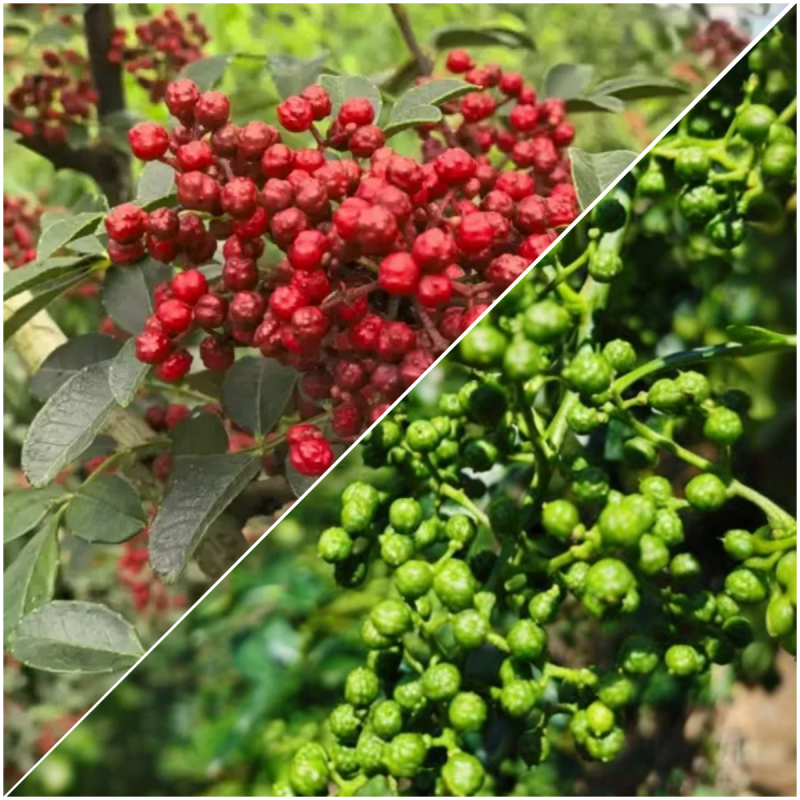
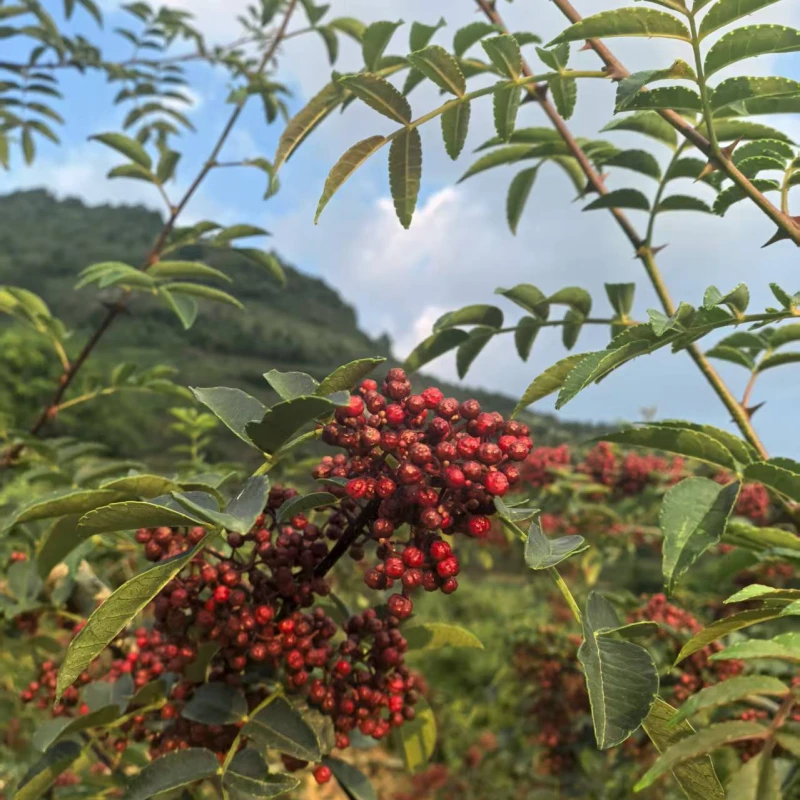
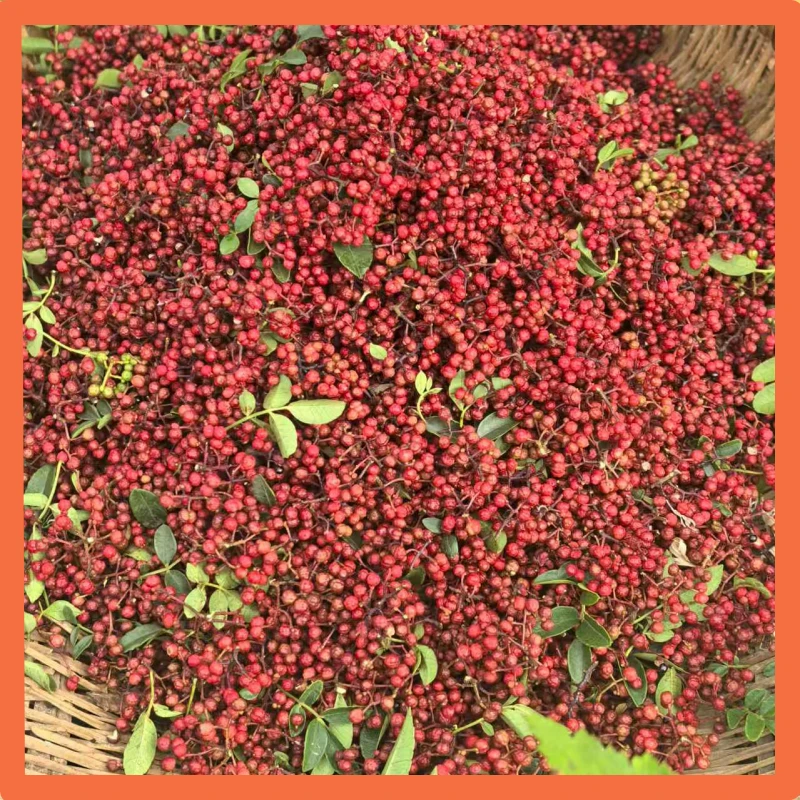
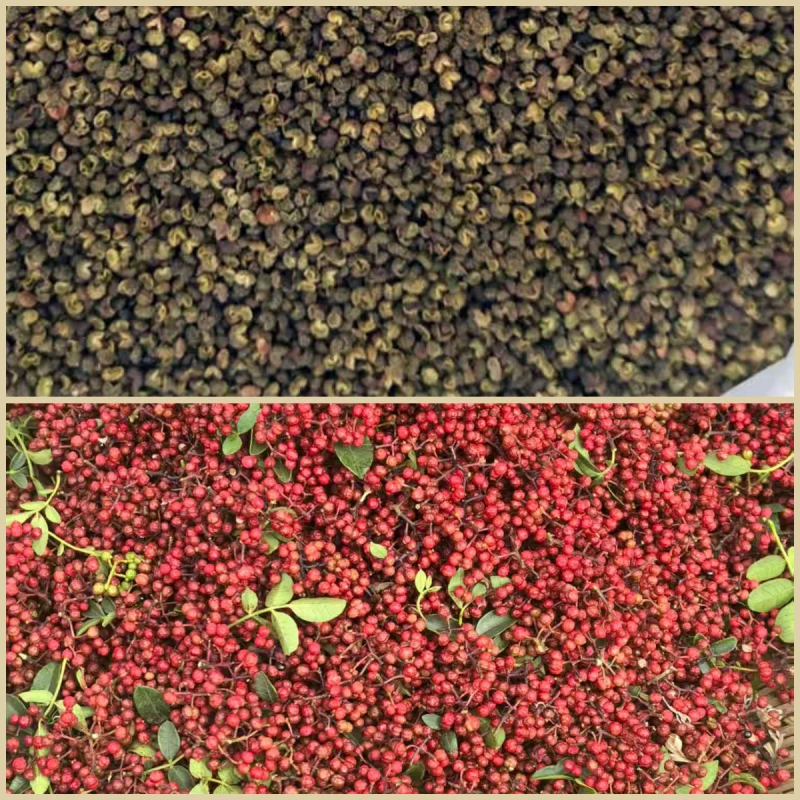

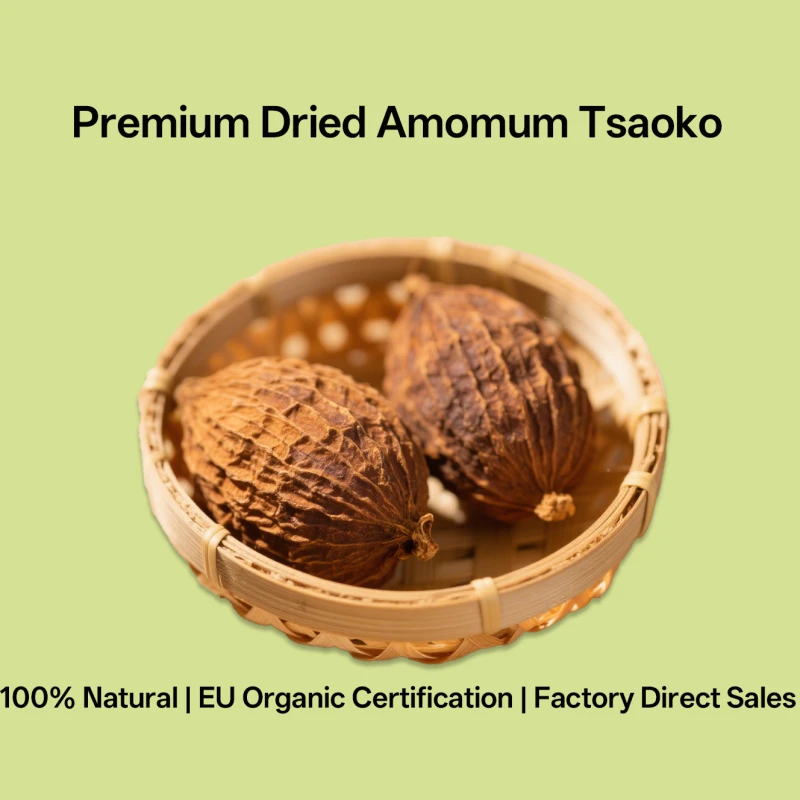
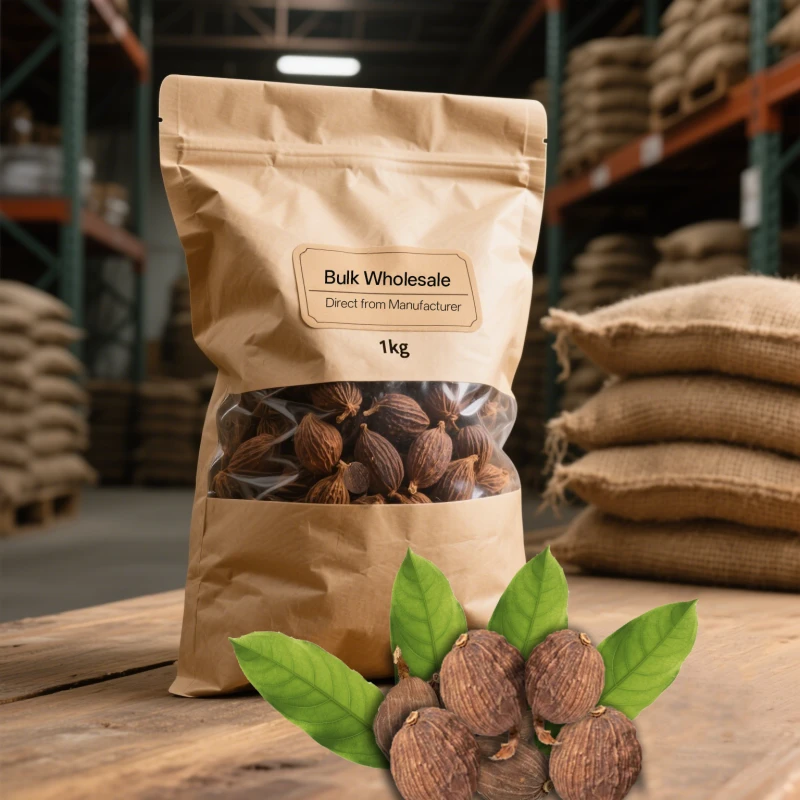
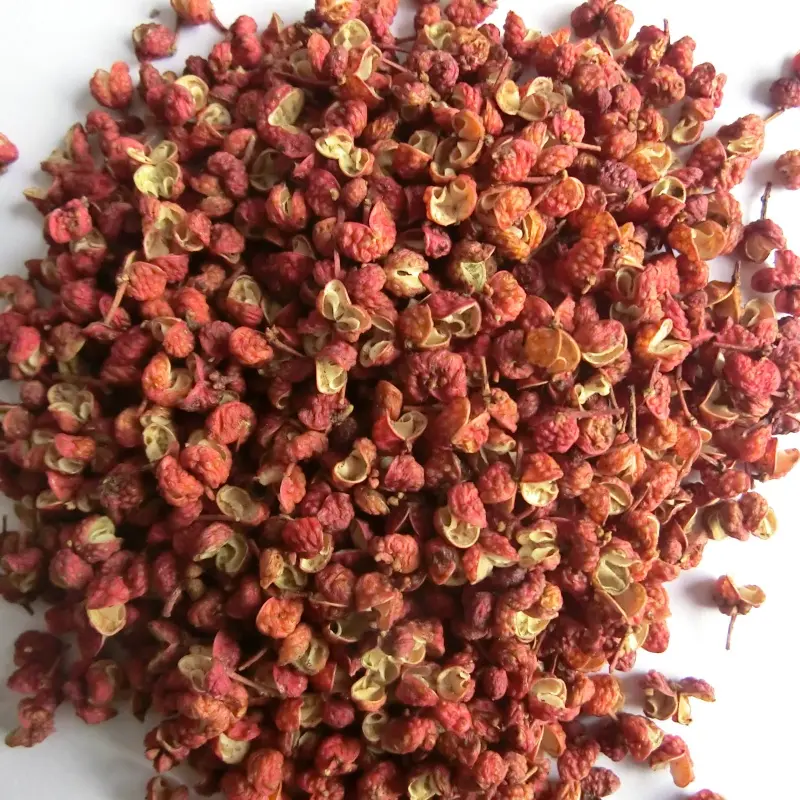
811.webp)
